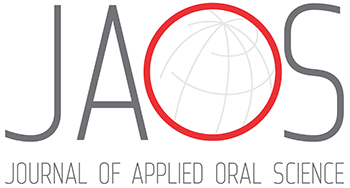This study evaluated, in vitro, the effect of iron (previously exposed with enamel powder or added directly to the beverage) on the erosive potential of carbonated or decarbonated beverage. Four sets of experiments were done. For groups E1 and E3, a solution containing 30 mmol/L FeSO4 was added to bovine enamel powder (particles between 75-106 mm) before exposure to the carbonated or decarbonated beverage (Sprite Zero®), respectively. For groups E2 and E4, 15 mmol/L FeSO4 was added directly to the carbonated or decarbonated beverage, respectively. Control groups were included for comparison. In controls C1 and C3, the experiments E1 and E3 were repeated, but the iron solution was replaced by deionized water. For controls C2 and C4, the carbonated and decarbonated beverage, respectively, was used, without addition of iron. After addition of the beverage to the powdered enamel (40 mg enamel powder/400 mL of final volume), the sample was vortexed for 30 s and immediately centrifuged for 30 s (11,000 rpm). The supernatant was removed after 1 min 40 s. This procedure was repeated in quintuplicate and the phosphate released was analyzed spectrophotometrically. The results were analyzed by Student's t-test (p<0.05). E2 presented the best results with a significant inhibition (around 36%) of phosphate released. For E3 and E4 a non-significant inhibition (around 4 and 12%, respectively), was observed. For E1 an increase in phosphate loss was detected. Thus, the protective effect of iron seems to be better when this ion is directly added to the carbonated beverage.
Tooth erosion; Demineralization; Iron; Dental enamel

